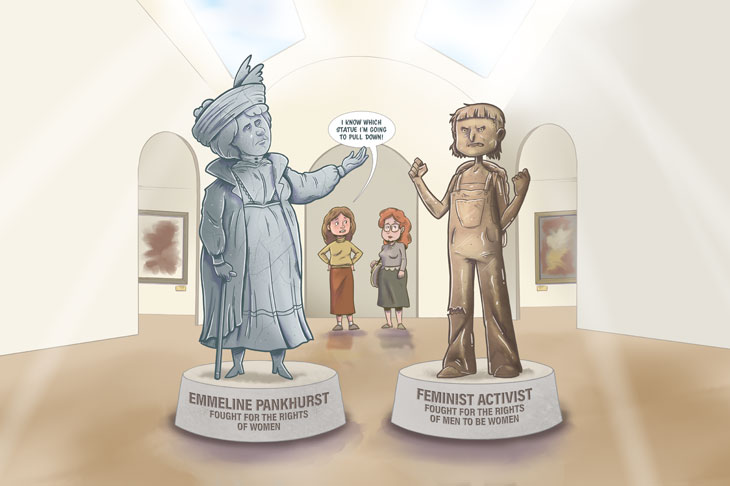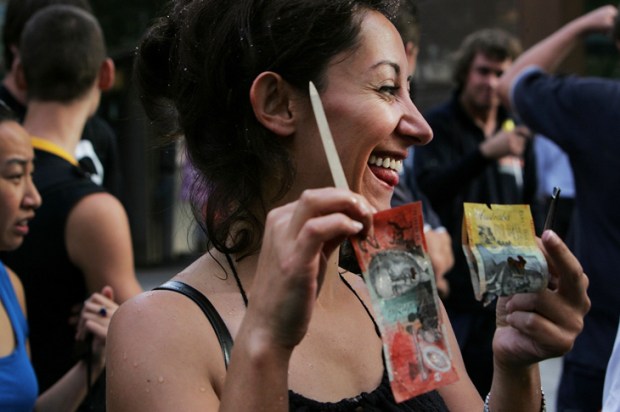The decision of the United States’ Supreme Court to overturn Roe v. Wade exemplifies that, for too long, women have taken their rights for granted. Roe was always at risk; its precarious, loose reasoning, predicated on the implications of decisional privacy, was not explicitly protected by the American constitution. In 1992, Justice Bader Ginsburg, writing extra curially, said that Roe ‘halted a political process that was moving in a reform direction and thereby… prolonged divisiveness and deferred stable settlement of the issue… the decision represented the exercise of raw judicial power… [and] imposed on the entire country a detailed set of rules for pregnancy divided into trimesters much like those that one might expect to find in a statute or regulation.’ It was apparent to Justice Bader Ginsberg, one of the key proponents of the women’s rights movement, that Roe was an example of what happens when the democratic function is usurped by judicial activism – it effectively destabilises women’s rights. Roe’s reversal has legitimised the validity of anti-abortion legislation in twenty-two US states: in thirteen, even victims of rape or incest are excluded from basic protection. This modern-day outlawing of abortion removes access to safe and affordable essential healthcare and leaves the challenging rationalisation of this outcome to a federal system of states bereft to deal with it nationally.
Despite over 60 per cent of Americans being in favour of abortion, the pro-choice movement has a desperate fight ahead, against a focused, well-resourced and well-established opposition that bided their time for almost half a century. The United States is a republic divided; ‘hands-across-the-aisle’ almost seems like a quaint concept. The advent of social media echo chambers, fueled by the optional voting system, has led to the populace becoming ever more entrenched in increasingly polarised positions.
In the 49 year hiatus since Roe was decided, those who would have once taken to the streets to champion women’s rights grew complacent. Lulled into a false sense of security, those who traditionally stood for the advancement of women and their biological rights, stopped fighting for women’s right to physiological autonomy and safety, and, instead, it seems, have occupied their time fighting for the rights of men to be women.
In a staggering betrayal, institutions that historically fought for women’s rights, such as American Civil Liberties Union (ACLU) and Planned Parenthood, distracted themselves by focussing on fighting for core tenets of gender identity ideology and actively undermining the rights of women and girls. Planned Parenthood busied themselves handing out testosterone to underage girls without their parents’ knowledge or consent after a single consultation. ACLU is litigating against states that protect women’s sports and representing the interests convicted male sex offenders who claim a right to be incarcerated with females. They betray the legacy of their heroine, Justice Bader Ginsburg, by subverting the importance of the legal term ‘woman’ with ‘pregnant person’ in her epithetical words on abortion. Unbelievably, the Biden administration, the Obamas, the doyenne of the progressives – AOC, and many others, are not immune. They used the overturning of Roe to signal their virtue by tweeting dehumanising terminology of those disadvantaged by the reversal such as ‘menstruators’, ‘birthing bodies’, or simply failing to mention women at all. Consumed with upholding the delusion that identity trumps biology, they forgot about women who conceived the fight for women’s rights – you know, as Ricky Gervais reminds us on Netflix in his wildly successful SuperNature, ‘the old-fashioned ones – the ones with wombs’.
In Australia, abortion will likely remain democratically protected because around 80 per cent of the population support access to safe and affordable abortion for women, and voting is compulsory. The right of a women’s access to a safe abortion is decriminalised and regarded as a medical issue in most states. However, in September 2019, in NSW, it was a bittersweet victory for those who champion women’s biological rights: when abortion was finally decriminalised in the state, it did not protect the rights of ‘women’, ‘females’ or ‘mothers’, instead, to placate the political agenda of independent MLA, Alex Greenwich (a gay male for whom the issues of women’s physiological autonomy and choice will always be utterly extraneous) who with others held the balance of power in the NSW Legislative Assembly, the legislation ultimately enacted operates to protect the rights of ‘pregnant persons’. Putting aside the incongruity of a female claiming to be man while undertaking the most definitively female act possible, one must wonder what sort of deal the Coalition government struck with Greenwich, when similar legislation first proposed in 2016 by female Greens MP Meereen Faruqi, that did include the word ‘woman’, failed to get up. Interestingly, Medicare data reveals that over 300,000 women gave birth in Australia 2018. Twenty-two ‘identified’ as men.
Sex is a reproductive category, gender is a societal role, and gender identity is an ideology of self-determination. The three are not equal but are being treated as if they legally are. Eliding the idea of gender identity and the reality of sex in law risks adverse health consequences, and more insidious and hidden discrimination against women. Pregnancy, birth, and motherhood are necessarily biological issues, not gendered issues. Pregnant women, new mothers and their infants have distinct vulnerabilities which require unique legal protection. The denuding of the legal language of female reproduction of quintessential attributes of sex has been done with a view to being sensitive and inclusive of the needs of less than 0.00007 per cent of the maternal population, but it has delivered unintended consequences with serious implications for women and children. When women are not permitted to define themselves as ‘adult human females’ their rights are debased. The more we permit this, the less our rights are capable of protection. As Dr Holly Lawford-Smith argues, ‘considerations against gender-neutral language for female-specific health issues include the history of struggle for women’s representation in language, which our feminist foremothers fought hard to win’.
The failure of Roe shows how precarious and fragile women’s rights are, and just how much we must be vigilant of their protection. It is a warning to the women’s movement to be attentive to the corrosive effect of populist ideologies such as gender identity and to remember that for which the women’s movement was imagined. Because however this plays out, the ‘people’ who are losing their rights, are not ‘womb-carriers’, ‘people with vaginas’, or ‘birthing bodies’, it is the daughters and granddaughters of the mothers who conceived and advanced the fight for the ‘old fashioned women’s’ rights. We are forever in their debt, and we owe it to these women to ensure that their legacy is not erased.
Got something to add? Join the discussion and comment below.
Get 10 issues for just $10
Subscribe to The Spectator Australia today for the next 10 magazine issues, plus full online access, for just $10.
You might disagree with half of it, but you’ll enjoy reading all of it. Try your first month for free, then just $2 a week for the remainder of your first year.














Comments
Don't miss out
Join the conversation with other Spectator Australia readers. Subscribe to leave a comment.
SUBSCRIBEAlready a subscriber? Log in